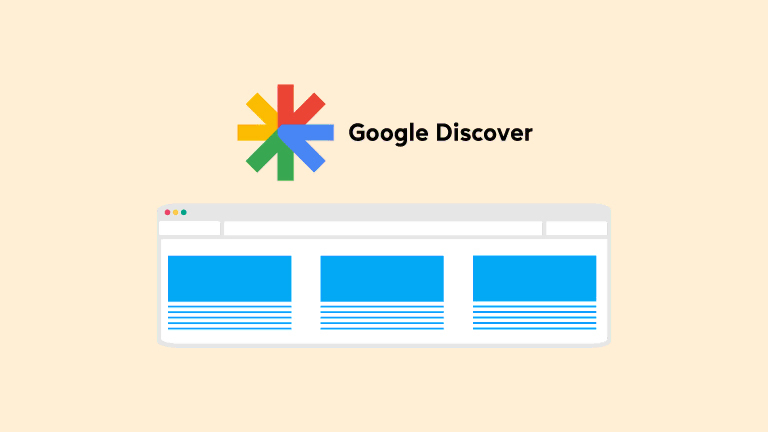Google Discover

Would you like to be found in Google even before someone has entered a search query? For many entrepreneurs and SEO consultants, this is a real dream. After all, this way you can reach your target audience before they themselves know they are going to need you.
With Google Discover, this dream has actually become a reality. But what exactly is Google Discover? And how can you optimize your content for Google Discover? You can read about that below.
What is Google Discover?
Google Discover was first known as Google Feeds and Google Now. With Google Discover, it predicts, based on your interests and search history, what content may be relevant to you at any given time.(1)

In this process, Google searches through an algorithm. This algorithm looks at content that is thought to be relevant to you. This allows Google Discover to give you information before you have looked for it yourself. Local SEO is interesting for Rotterdam, Amsterdam, The Hague and Groningen, for example.
How Google Discover works
To do this, information is used from your device and from other Google products you may use.
For example, your Google Calendar is used. Do you have a vacation to Madrid listed in your Google Calendar? Then with Google Discover you will get information, for example, about recommended restaurants in Madrid or places you really shouldn’t have missed.
Data stored in your Google account is also used to make recommendations. These include web and app activities, contact information stored on your devices, location history, app data from your devices, etc.
If you use the Google app you will automatically come across the Google Discover feature. Do you use the Google app on your phone? Then you will also see Google Discover popping up on the home page of your browser.
If you have web and app activity turned off, then your Google Discover cannot be personalized. No custom content is displayed in this case. Instead, you get content displayed about trends currently going on in the country you are in.
Impact on SEO
As an SEO, you may be wondering how you can leverage Google Discover to reach more potential customers. You can choose to have your articles appear in Google Discover.
It is not possible to optimize your articles for Google Discover, as is possible for organic search results, for example. This is because in this case it is not about what the user himself is looking for, but what Google thinks the user will find interesting and needs to know.

So you can’t do anything to rank as well as possible to get into Google Discover, you can only write articles that are as relevant as possible and feature interesting content.
My advice
If you would like to appear in Google Discover, the quality of your content is hugely important. Therefore, always make sure the content of your article is good. This content shows Google what your website is about, which can automatically get you listed in Google Discover.
- Get on Discover | Google Search Central | Documentation | Google for Developers. (s.d.). Google For Developers. https://developers.google.com/search/docs/appearance/google-discover#:~:text=Discover%20is%20a%20part%20of,their%20Web%20and%20App%20Activity.






